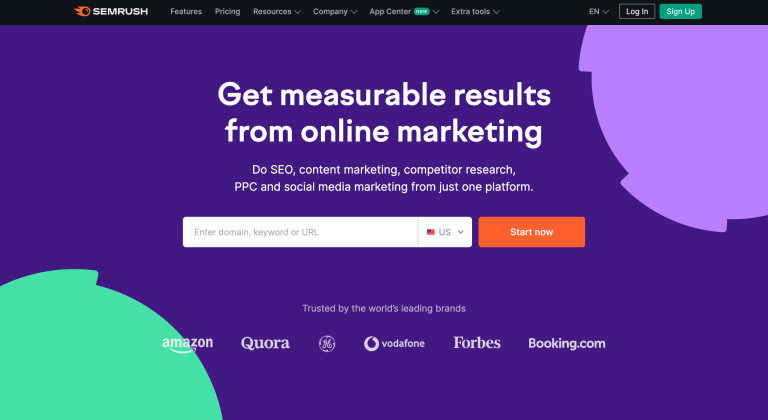The Complete Guide to SERP APIs: Scraping Search Engine Results
Introduction
In today’s digital age, information is the currency that drives business decisions and strategies. With the world’s knowledge at our fingertips through search engines, accessing and analyzing this data has become crucial for organizations across industries. However, manually scraping search engine results is a time-consuming and inefficient process, often leading to inaccurate data and potential legal issues. This is where SERP (Search Engine Results Page) APIs come into play, offering a seamless and reliable solution for scraping and parsing search engine data.
Table of Contents
- What is a SERP API?
- Benefits of Using a SERP API
- Key Features of SERP APIs
- Use Cases for SERP APIs
- Choosing the Right SERP API Provider
- Integrating SERP APIs into Your Workflow
- Best Practices for Using SERP APIs
- Conclusion
What is a SERP API?
A SERP API, or Search Engine Results Page API, is a service that allows developers and businesses to programmatically access and retrieve search engine results data. Instead of manually scraping websites, which can be inefficient and potentially violate search engine terms of service, SERP APIs provide a reliable and legal way to obtain structured data from various search engines, such as Google, Bing, Yahoo, and others.
These APIs act as an intermediary between your application and the search engines, handling the complexities of web scraping, parsing HTML, and standardizing the data into a consistent format. With SERP APIs, you can easily integrate search engine data into your applications, workflows, and business processes.
Benefits of Using a SERP API
Using a SERP API offers numerous advantages over traditional web scraping methods, including:
- Time and Cost Efficiency: SERP APIs eliminate the need to develop and maintain complex web scraping infrastructure, saving significant time and resources.
- Data Accuracy and Reliability: SERP APIs provide accurate and up-to-date search engine results, ensuring that you have access to the most recent information.
- Legal Compliance: By using a SERP API, you can avoid potential legal issues associated with web scraping, as these services comply with search engine terms of service and data usage policies.
- Scalability: SERP APIs are designed to handle high-volume requests, making them suitable for large-scale data collection and analysis projects.
- Structured Data: Search engine results are parsed and delivered in a structured format, such as JSON or XML, making it easier to work with and integrate into your applications.
- Global Coverage: Many SERP API providers offer the ability to retrieve search results from various locations worldwide, enabling international data collection and analysis.
Key Features of SERP APIs
SERP APIs typically offer a wide range of features to meet diverse business needs. Here are some of the key features to look for:
Easy Integration
Most SERP API providers offer client libraries and SDKs for popular programming languages, such as Python, JavaScript, Java, and more. These libraries simplify the integration process, allowing developers to quickly incorporate search engine data into their applications.
Advanced Features
SERP APIs often provide advanced features like location-based search, device-specific results (e.g., desktop, mobile), and language support. Additionally, some APIs offer the ability to filter results based on specific criteria, such as safe search settings or result types (e.g., news, images, shopping).
Real-Time and Real Results
Many SERP APIs execute searches in real-time, ensuring that you receive the most up-to-date results. Furthermore, some providers utilize real browser environments and CAPTCHA-solving technologies to mimic human behavior, guaranteeing accurate and genuine search engine results.
Accurate Locations
SERP APIs frequently offer the ability to specify the location for which you want to retrieve search results. This feature is particularly useful for businesses targeting specific geographic regions or conducting localized market research.
Structured Data
Search engine results are parsed and delivered in structured formats, such as JSON or XML, making it easier to work with and integrate into your applications. SERP APIs often provide access to various types of search results, including organic listings, knowledge panels, images, videos, and more.
Use Cases for SERP APIs
SERP APIs have a wide range of applications across various industries and business functions. Here are some common use cases:
Search Engine Optimization (SEO)
SERP APIs are invaluable tools for SEO professionals and agencies. By retrieving real-time search engine results, you can monitor your website’s rankings, analyze competitor performance, and gain insights into search engine algorithms and ranking factors.
Competitive Analysis
With SERP APIs, you can easily track your competitors’ online presence, monitor their search engine rankings, and analyze their content strategies. This information can inform your own marketing and business decisions, helping you stay ahead of the competition.
Market Research
SERP APIs provide a wealth of data for market research and analysis. By retrieving search results for specific keywords or topics, you can gain insights into consumer trends, product demand, and market opportunities.
Brand Monitoring
Companies can use SERP APIs to monitor their brand’s online presence, track mentions, and analyze sentiment across various search engines. This information can help identify potential issues, protect brand reputation, and inform communication strategies.
Ad Verification
Advertisers and agencies can leverage SERP APIs to verify the placement and positioning of their ads on search engine result pages. This helps ensure that ad campaigns are running as intended and provides valuable data for optimizing ad spend.
Choosing the Right SERP API Provider
With numerous SERP API providers available in the market, it’s essential to choose one that meets your specific needs. Here are some key factors to consider:
- Search Engine Coverage: Evaluate the search engines supported by the provider and ensure they align with your target audience and geographic regions.
- Data Quality and Accuracy: Look for providers that offer high-quality data and employ techniques like real browser rendering and CAPTCHA solving to ensure accurate results.
- Pricing and Usage Limits: Consider the pricing models and usage limits offered by different providers, and choose one that fits your budget and projected usage.
- Documentation and Support: Evaluate the quality of the provider’s documentation, sample code, and customer support to ensure a smooth integration and troubleshooting experience.
- Additional Features: Assess the additional features offered by the provider, such as location-based search, device-specific results, and filtering options, to ensure they meet your specific requirements.
- Compliance and Legal Protection: Choose a provider that adheres to search engine terms of service and offers legal protection against potential liabilities associated with web scraping.
Integrating SERP APIs into Your Workflow
Integrating SERP APIs into your workflow typically involves the following steps:
Setting Up Your API Key
Most SERP API providers require you to obtain an API key or authentication credentials to access their services. This process usually involves signing up for an account and generating a unique key.
Making API Requests
Once you have your API key, you can start making requests to the SERP API. This typically involves sending HTTP requests with the appropriate parameters, such as the search query, location, and desired result types.
Handling Responses
SERP APIs typically return search engine results in a structured format, such as JSON or XML. Your application will need to handle and parse these responses to extract the relevant data for further processing or analysis.
Pagination and Batch Processing
Many SERP APIs support pagination, allowing you to retrieve results in batches or pages. This is useful when working with large datasets or performing bulk operations. Additionally, some providers offer batch processing or asynchronous request handling, enabling efficient parallel processing of multiple search queries.
Best Practices for Using SERP APIs
While SERP APIs offer numerous benefits, it’s essential to follow best practices to ensure compliance, responsible data collection, and optimal performance.
Compliance with Search Engine Policies
When using SERP APIs, it’s crucial to comply with the terms of service and policies set forth by the respective search engines. Responsible providers ensure that their services adhere to these policies, but it’s still important to review and understand the guidelines to avoid potential legal issues.
Responsible Data Collection
While SERP APIs provide access to vast amounts of data, it’s important to collect and use this data responsibly. Respect intellectual property rights, privacy considerations, and any applicable data protection regulations.
Error Handling and Retry Mechanisms
SERP APIs may occasionally encounter errors or temporary outages. Implement robust error handling and retry mechanisms in your application to gracefully handle such situations and ensure data integrity.
Scalability and Performance
As your data collection and analysis needs grow, it’s important to consider the scalability and performance capabilities of the SERP API provider you choose. Look for providers that offer high throughput, parallel processing, and efficient resource utilization to support your growing requirements.
Conclusion
SERP APIs have revolutionized the way businesses and developers access and leverage search engine data. By providing a legal, efficient, and reliable method for scraping and parsing search results, these APIs have opened up new opportunities for SEO, market research, competitive analysis, and more.
As the demand for data-driven insights continues to grow, SERP APIs will play an increasingly crucial role in empowering organizations to make informed decisions and stay ahead of the competition. By following best practices, choosing the right provider, and integrating SERP APIs into your workflow, you can unlock the full potential of search engine data and drive your business forward.
If you’re looking to outrank your SERP competitors, check out BlitzBear. Our AI-powered SEO software utilizes SERP APIs — among other technologies — to write new content and optimize your existing articles with SEO improvements based on your SERP competitors.






